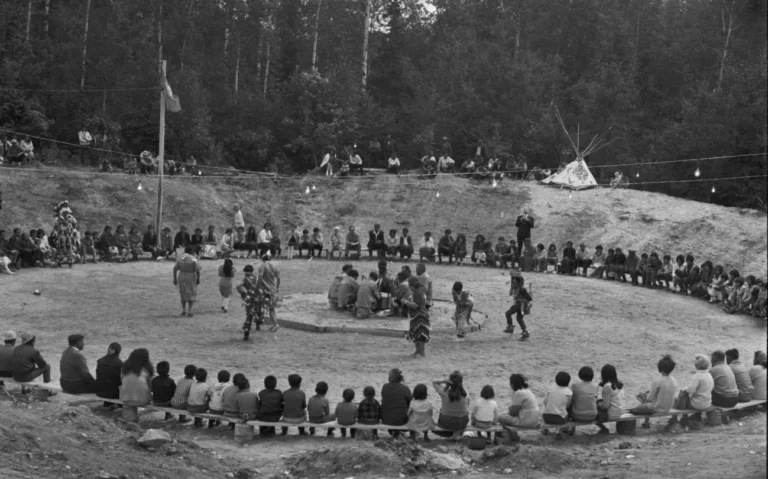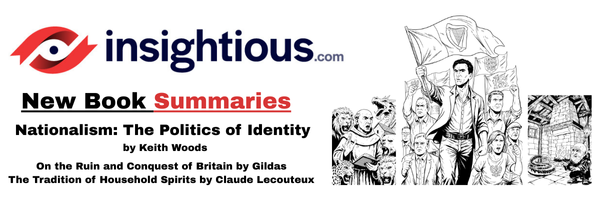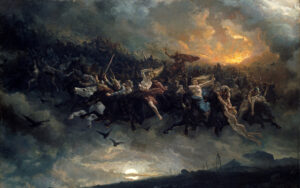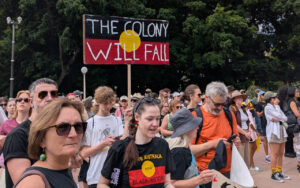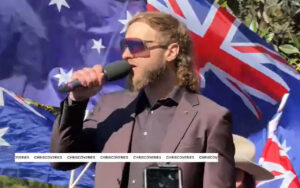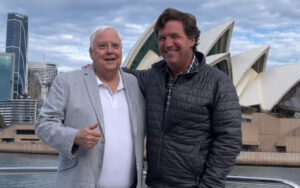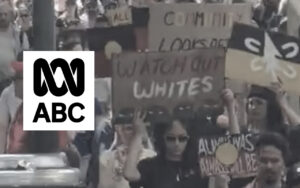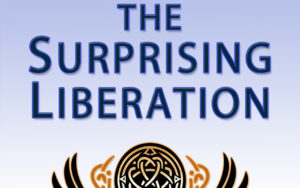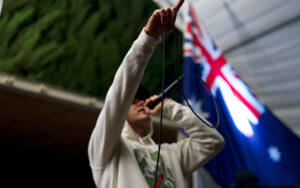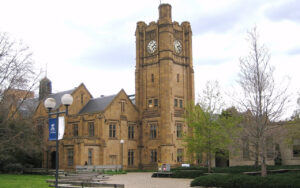By Anishinaabe Man
Had the catastrophic demographic change brought on by the post-1965 immigration mania never occurred Indigenous Americans would be the third or fourth largest demographic group in the United States today.
Instead, the Indigenous people of the modern United States have been surpassed in number by any manner of foreign ethnic groups ranging from five-plus million subcontinental Indians, to six million Puerto Ricans, 4.2 million Chinese, and more than 37 million Mexicans.
Our modest population of 3.7 single-race native Americans stands little chance of asserting its political interests in this hyper-diverse America where larger, richer, foreign ethnic groups are continually imported in an effort to change the nature of the country.
What little representation is left for Indigenous Americans has already been relegated to generally college-aged women of a radically left-leaning orientation. Women who have rarely stepped foot on a reservation, and remain largely ignorant of their cultural histories despite dawning seemingly endless amounts of traditional garb and regalia in order to show off their uniqueness among the growing tide of diversity.
It is palpably ironic, at least to this author, that these youngsters are attempting to push what they view as legitimate Indigenous political interests at the same time that they support seemingly endless mass migration into the continental United States and thereby contribute to a quieting of Indigenous political voices on at the state and national level.
Indeed, if the mass migration continues at its current pace Indigenous Americans will be re-relegated to the status of second-class citizens in a country where we were beginning to make political, social, and economic gains amidst a change in White attitudes in the middle of the 20th century. We could have formed a much more robust ethnic lobby (perhaps the best-funded in the nation) that would have expanded our sovereignty and rights, but this is impossible in an ever-diversifying America.
The logic here is quite simple: In the pre-1965 demographic mix of the country, there were three predominant demographic groups led by Whites, then African Americans, and finally Indigenous Americans. As a minority we were in a position to negotiate directly with the large White majority and could have (and still should) formed a series of strategic alliances with White Americans on social issues such as mass immigration and opposition to the growing power of the LGBTQ lobby over public policy in this country.
Instead Indigenous nations and the reservation populations they rule over risk becoming an irritant to the increasingly diverse ruling class of the United States. How long will it be before the newly imported diverse populations either begin demanding that reservations be abolished (to redirect resources to their ethnic groups) or that they be given similar reservation-style arrangements? While the reservation system is far from perfect it does serve to ‘reserve’ significant amounts of land, natural resources, and sovereignty to Indigenous Americans and we would stand a far better chance of reforming it were we the primary or tertiary ethnic group in the country.
It is here I should note that I bear little animus toward modern Whites. A series of Supreme Court rulings since the 1970s have significantly expanded sovereignty rights for Indigenous nations in the United States and White Americans today support Indigenous self-determination, tribal sovereignty, and expansion of tribal authority by large margins.
78% of (generally White) conservative Americans support teaching Indigenous history in schools, 75% support preventing non-native governments from interfering in child custody cases within tribes, and 58% of conservative Americans support increasing funding for native tribes.
With this in mind, I would like to shift focus and look at the areas where Indigenous American and White American political interests (at least those of right-wing Whites) converge to a significant degree.
Indigenous Americans are, according to a 2022 Global Affairs poll, the racial group most likely to oppose the increasing diversification of the United States, with 33% of Indigenous Americans saying that increasing diversity is making the country a worse place to live.
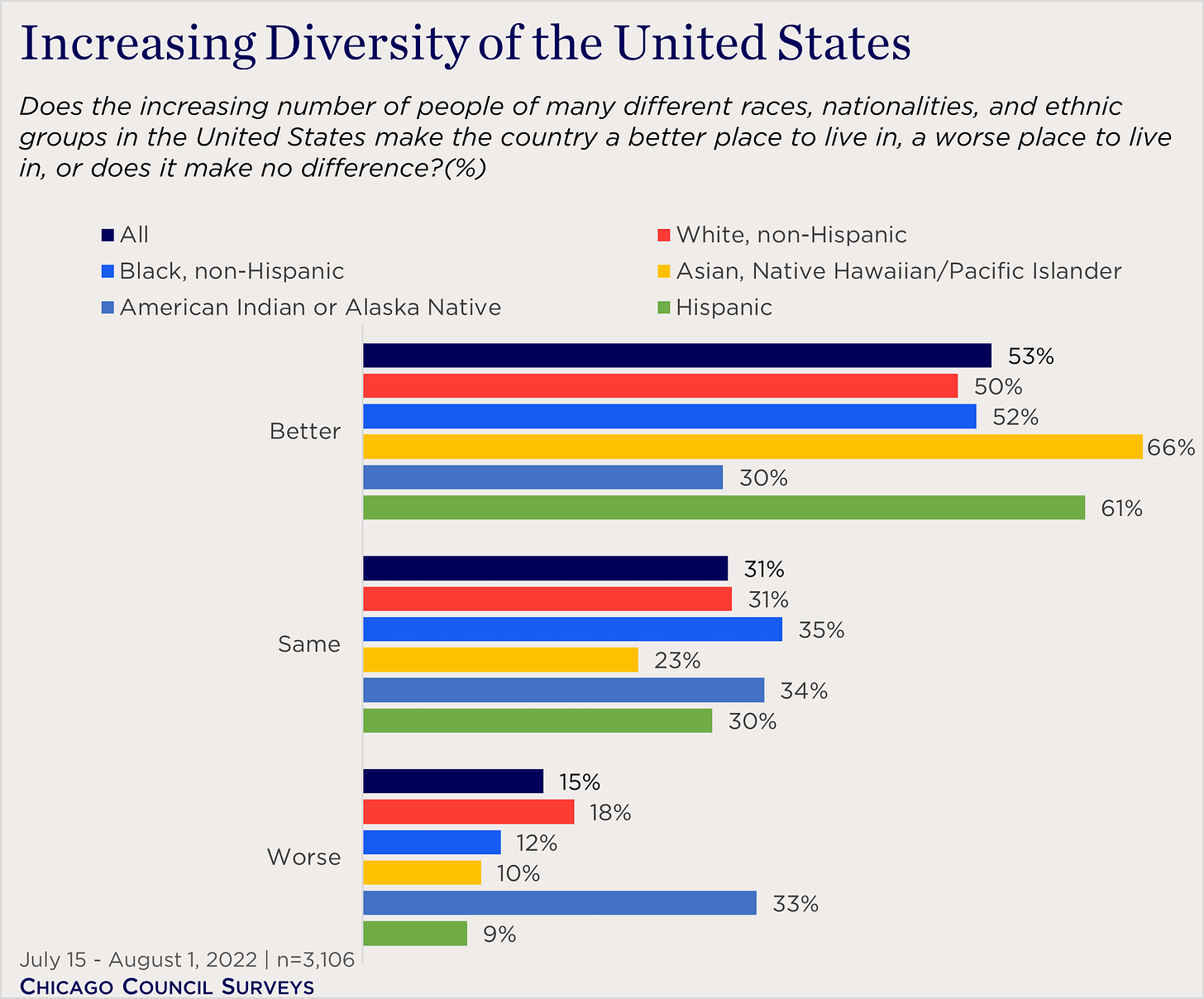
Indigenous Americans are also the group most opposed to increasing legal immigration with 37% of Indigenous Americans supporting a decrease in legal immigration into the United States and only 20% of the group supporting an increase in legal immigration. This can be starkly contrasted with the 34% of Hispanics and 32% of Asians in the United States who support increasing legal immigration into the country.
Further polling within the Global Affairs report shows that 51% of Indigenous Americans view further immigration into the United States as a threat to the vital interest of the country and believe that immigration will pose a critical threat over the coming decade (through 2032). This can again be contrasted against other ethnic groups: only 32% of Hispanics, 33% of Asians, and 29% of African Americans view immigration as a threat to the vital interests of the United States.
And immigration is not the only arena where Indigenous political priorities and those of right-wing Whites coincide. Many native tribes (at least 10) explicitly prohibit same-sex marriages from being performed within their reservations while many dozens more do not perform same-sex marriages within their borders and only recognise those performed outside of the reservation. Several of the largest Indigenous nations such as the Navajo, Gila River community, Creek, Seminole, and Citizen Potawatomi also ban or refuse to recognise the largely culturally alien practice of homosexual unions.
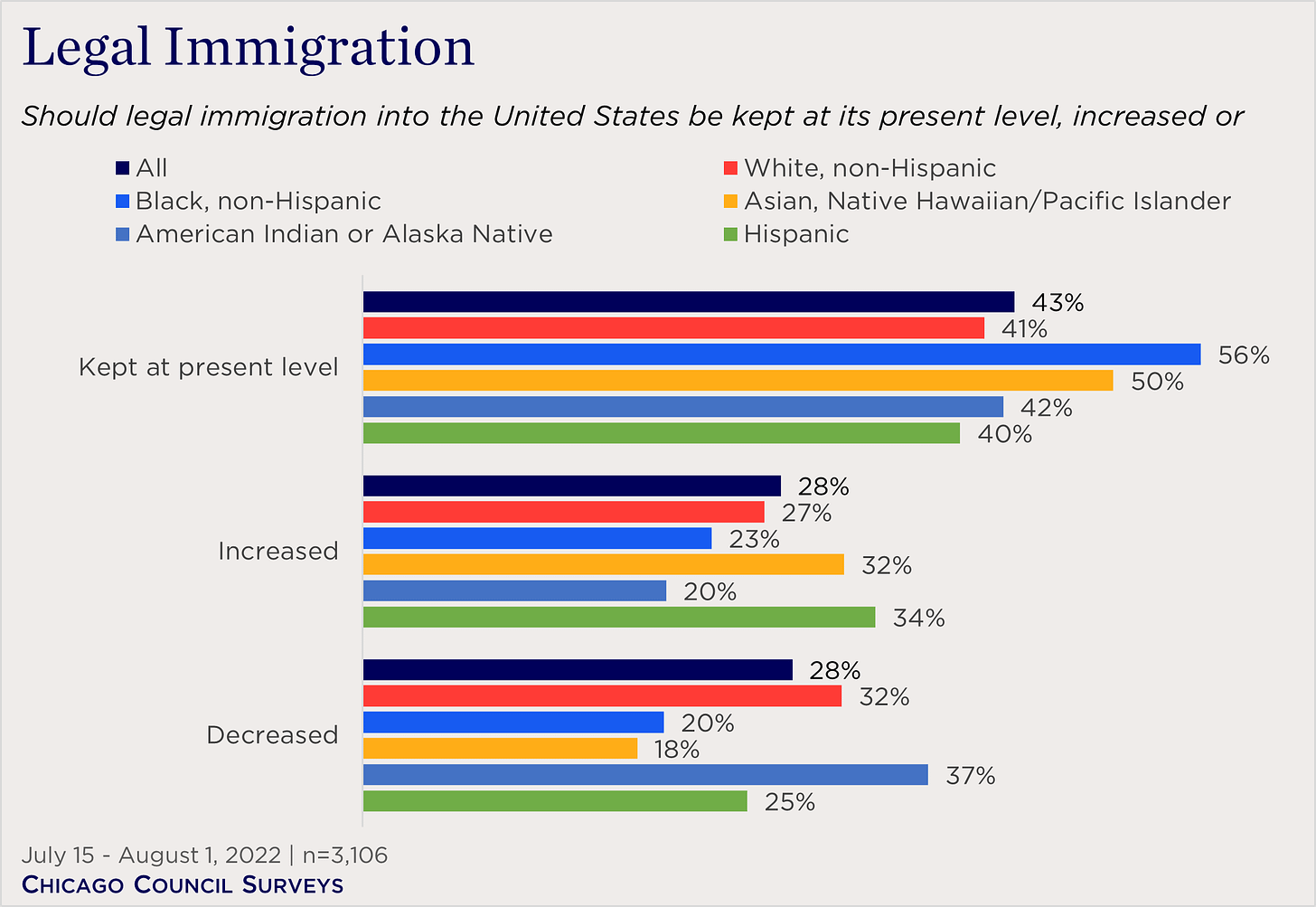
There is also widespread resistance (at least on reservations) to the concept of ‘two-spirit’ individuals. The term was invented in the 1990s by LGBT activists and has since invaded purportedly Indigenous institutions with little input from the wider community of Indigenous Americans. This resistance to the two-spirit myth is very similar to the overwhelming majority of White Americans (70-plus percent) who oppose transgender politics being imposed on their children and also lines up well with the 68% of Americans who believe that your innate sex cannot be changed.
Indigenous Americans have already survived one significant demographic, cultural, and political shift with the colonisation of the North American continent and the subsequent establishment of European political institutions and nation-states. We were just beginning to reassert our sovereignty and increase our political authority over our reservations when the series of legislative and administrative catastrophes that brought about the current era of mass immigration were put into place.
Had the Great Replacement not interrupted this process Whites and Indigenous nations would surely still be working toward a more favourable compromise for both peoples, but instead this process has been derailed and is being turned into a new 21st century battlefield between Indigenous nations and White Americans. Popular media portrays almost all Indigenous representatives as incredibly left-wing, anti-American, and anti-White. This has led to most Americans, of any race, believing that the vast majority of Indigenous people are on the left-wing side of nearly every political issue of the day.
An example of this popular view of Indigenous nations as inherently left-wing and a part of the ‘diversity coalition’ is exemplified by the incredible White backlash in response to the McGirt v. Oklahoma Supreme Court case of 2020 which held that the state could not prosecute tribal members for crimes as they were under the jurisdiction of the tribe and Federal courts while on reservation land. This case originated because an African American member of the Muscogee (Creek) nation had been tried for a brutal murder by the state of Oklahoma and then challenged the state’s jurisdiction to do so in Federal court.
But what many Americans are not aware of is that many tribal nations such as the Cherokee, Choctaw, Seminoles, and indeed the Muscogee have been steadily removing African Americans and other non-natives from their tribal citizenship rolls for decades now. Many, if not most, Indigenous nations have little interest in claiming criminal jurisdiction over criminals who are not of native descent, yet the largely left-wing media does not cover this series of developments as it would contradict their insistence that Indigenous Americans are a uniformly left-wing arm of the ‘diversity coalition’ they have established to fight against the White majority and the traditional (generally Christian) values that many Americans of all races continue to hold.
The diversity coalition has done Indigenous Americans no favours and it is time to begin asserting our strong traditional values and collective identities to combat the second great demographic transformation of this continent – for there is no guarantee that the new majority groups will have any interest in negotiating a favourable new settlement with our Indigenous nations.
This article originally appeared on White-Papers and is republished by The Noticer with permission. Follow the White Papers Policy Institute on Telegram here.
